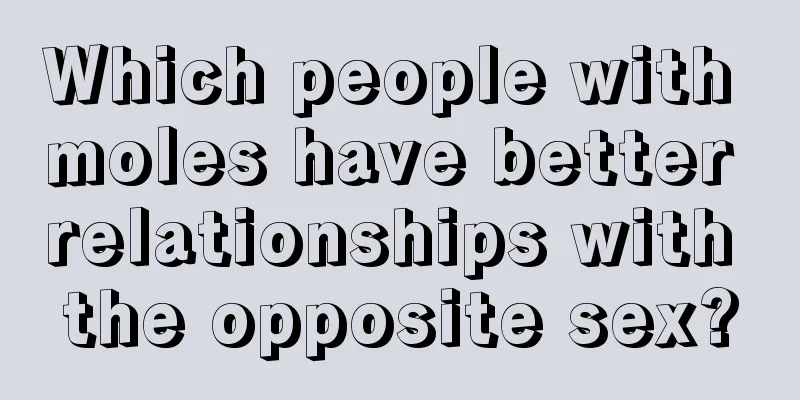Dubai Global Blockchain Committee announces first wave of 7 blockchain pilot projects

|
On May 30, 2016, Dubai’s Global Blockchain Council (GBC), a public-private initiative formed by local businesses, government agencies and startups, held its 2016 industry-themed conference at the Burj Al Arab in Dubai, announcing seven new blockchain proof-of-concepts. The committee, which was formed in early 2016 and now has more than 30 members, was joined by IBM, telecom operator du and the Dubai Multi Commodities Centre (DMCC), among others, who announced several projects at the meeting, including one focused on interoperability for loyalty platforms and one to reduce illegal jewelry trade. Saif Al Aleel, CEO of Dubai Future Foundation, opened the first session of the morning by introducing the foundation’s goal of bringing together innovators and key players in the local market. Al Aleel told attendees:
Museum of the Future Foundation COO Noah Raford later said these implementation projects are just the beginning of GBC's progress.
The projects are scheduled to be implemented over the next three to six months so they can be evaluated and then new and better use cases can be developed, Reiford said. The following are the seven pilot projects announced at the meeting: 1. Medical Records
Jose Valles, Du’s vice president of innovation, first raised the issue at the conference, before unveiling a project his company is working on to digitize medical records using blockchain technology. The project is the latest proof-of-concept for innovators challenging medical records, following similar efforts by Philips and IBM. According to Wallace, the project, which is a collaboration with Estonian software company Guardtime, puts Dubai at the forefront of efforts to use blockchain technology to improve the security of medical records.
2. Securing jewelry transactions Perhaps the most notable speech of the day came from James Bernard, head of business development at DMCC, one of the region's largest providers of commodity trading infrastructure. Bernard outlined how DMCC has worked with GBC members to create a pilot project using blockchain technology to verify and deliver Kimberley Certificates, a physical document introduced by the United Nations in 2003 to stem the flow of conflict diamonds.
Bernard said he believed blockchain could not only digitize paper-based procedures but also reduce document duplication and other human errors by allowing member states to trade and share data. Bernard's speech attracted particular attention because statistics showed that DMCC traded a total of US$35 billion worth of diamonds in 2010. Because DMCC currently chairs the Kimberley Process, coordinating actions among its 81 member countries, Bernard said they were able to find the necessary participants to ensure the pilot project could be successful. 3. Transfer of Ownership The concept that blockchain can be used to digitize paper-based procedures was also discussed during a presentation by Vignesh Raja, a private equity expert at Viktor Koenig LLC. Raja described a proof-of-concept they are developing in partnership with Singaporean blockchain startup DXmarkets: physical commodity dealers, such as antique dealers, will be able to digitize their existing illiquid assets and better connect with large commodity exchanges, such as DMCC.
Raja said that by automating verification and transfer of ownership, commodity markets will become more robust while ensuring compliance with Islamic finance principles and that tokens can be backed by physical assets. 4. Business registration The pilot project was presented by BitOasis CEO Ola Doudin and was carried out in collaboration with DMCC to improve internal processes. The trial was announced at the time of GBC’s inception and envisages that by simplifying ID verification for DMCC’s Flexi Desk project, it will be easier for many companies to go online with the DMCC trading system.
Dudin said the project is currently in the demonstration phase, and her company is looking for banks, telecom providers, duty-free zones and other potential partners to take the proof of concept further. Last week, BitOasis just completed its seed round of financing, with participation from Wamda Capital and payment processor PayFort. 5. Digital Will Pinaki Aich, vice president of strategy at the Dubai International Financial Centre (DIFC), has a vision to help companies better transfer ownership. The largest business category in the Middle East and North Africa (accounting for an estimated 98% of GCC companies), he said 75% of family businesses fail when management is transferred to the next generation. Describing the scaling problem ahead, Ashley said:
Given this situation, Eich believes that blockchain-based wills and contracts can help alleviate this problem, as blockchain technology can enable MENA companies to complete the transfer of corporate operations while complying with local regulations. The project is jointly carried out by DIFC and DigitUs, a specialist company in blockchain applications and services. 6. Tourism Management Blockchain startup and GBC member Loyyal later presented a proof-of-concept on how blockchain technology could boost the travel industry by enabling travelers to better earn and spend loyalty points. Called Dubai Points, the blockchain pilot will stimulate the tourism industry and is in line with the goals of the Dubai Future Foundation. Loyyal CEO Geg Simon predicts smart contracts will play a major role in making the program interoperable, allowing points allocations to be tied to photos taken at specific locations, for example, and governing rules for which points can be traded between businesses. Simon said the proof of concept is under development and is also working with a number of regional companies, including du, Jumeirah, Flyin, Privity, International Culinary Centre for Culinary Arts Dubai, SquareCircle Tech and DigitUs. 7. Improve freight transportation Iqbal Alikhan, Director of Strategy and Business Development at IBM, succinctly outlined how IBM is working with GBC to provide blockchain technology solutions for financial transactions. This use case finds companies in many regions collaborating on how to trade commodities and finance those commodities more efficiently. Alikhan explained:
Alikhan later expanded on this use case during his keynote, emphasizing IBM’s confidence in blockchain’s application in financial trade.
Along with compliance and settlement, blockchain solutions in these three areas are best suited for clients, Alikhan said. |
<<: An annualized return of 100% is something that is embarrassing to mention in this industry!
>>: 2016 Libertarian Party Presidential Candidate Endorses Bitcoin
Recommend
Israeli Bitcoin Mining Company Takes Bank to Court Over Account Closure
According to foreign media reports, Israel’s loca...
Bitcoin faces a big test, can it hold $55,000?
Author | Hashipi Analysis Team...
What is the fate of a woman with a short nose?
What is the fate of a woman with a short nose? Th...
Is a mole on a man’s philtrum considered an evil mole? What does it mean?
Moles grow on various parts of the human body, an...
Economic Daily: Don’t treat digital collections as “money-making” products
Recently, Guangyi Digital Collection, a digital c...
The twelve palaces of the divine face
"Shen Xiang Tie Guan Dao" covers four b...
Poloniex exchange does not support SiaClassic yet
Poloniex official twitter announced that Poloniex...
These businesses with small capital and small profits can still persist
It is said that business is like a battlefield. N...
Where is the best place for a man to have a mole? Where is the best place for a man to have a mole?
A man's blessing comes down to two things: a ...
What does a mole on the ear mean? It affects health and longevity
The ear is one of the most important organs in th...
How to tell children's fortune by palmistry
The children line is the line between the base of...
When will you be most lucky to make money? ★Facial features★
As the saying goes, "There are wintersweets ...
Physiognomy: The face of a kind-hearted person
Physiognomy: The face of a kind-hearted person Th...
Why are moles on the tip of the nose considered auspicious, while moles on the wings of the nose are considered inauspic
Traditional physiognomy covers a wide range, among...
Career line shows whether you are successful in your career
What is the career line? The career line originat...









